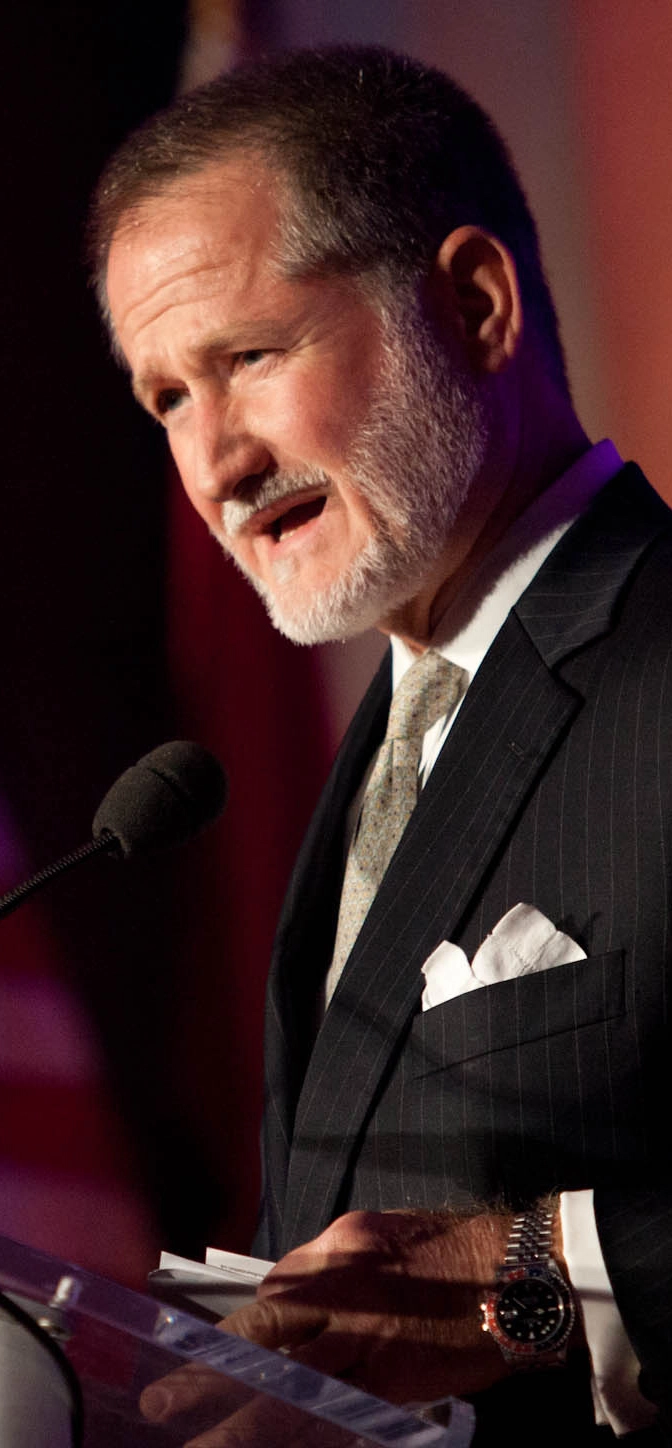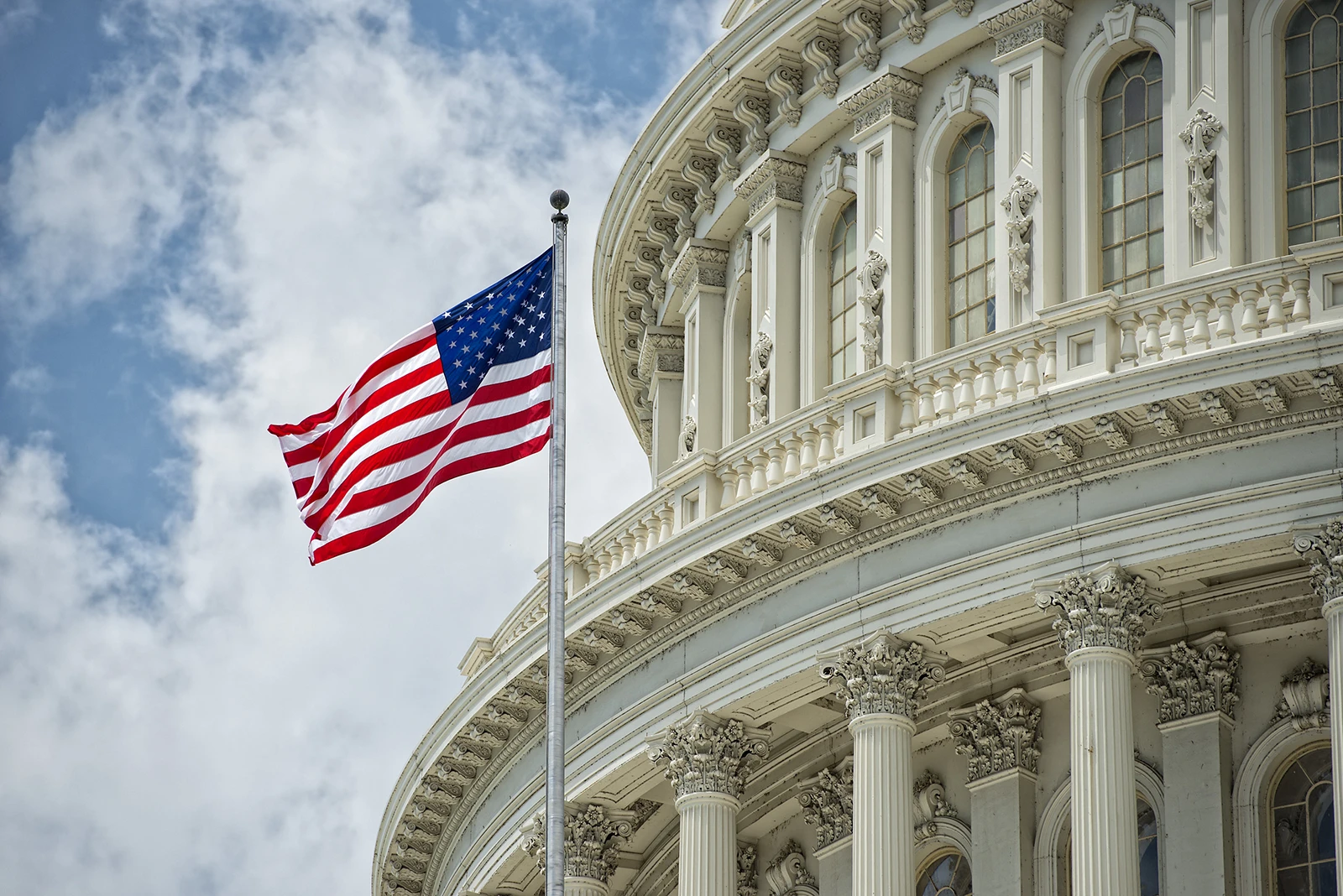Washington, D.C. - December 18, 2024 - The United States is primed to establish the U.S. Foundation for International Conservation (USFIC), co-chairs of the U.S. Congressional International Conservation Caucus (ICC) announced today, as the U.S. Senate approved the Servicemember Quality of Life Improvement and National Defense Authorization Act (NDAA), paving the way for up to $3 billion in public and private funding over the next ten years for the long-term management of protected and conserved areas and the communities they support around the world. The annual defense authorization, passed with bipartisan support in the final weeks of the 118th Congress, contained a wide range of legislative initiatives, including several key conservation measures championed by leaders of the International Conservation Caucus, including the U.S. Foundation for International Conservation Act (USFICA).

"Once in a generation a new idea comes along that takes root in America to support natural resource management for the future. Today, the United States Congress voted to establish the United States Foundation for International Conservation to provide conservation leadership support for national parks and protected areas in Africa, Asia, and Latin America for the benefit of their peoples, their communities, and their biodiversity. ICCF is proud to support the leadership of the International Conservation Caucus, and I applaud them, and our allies in Congress, for this key conservation victory.”
Under the USFICA, the Secretary of State is tasked with establishing the new, nonprofit entity within the next 180 days. Congress had previously appropriated $100 million for the USFIC in its Fiscal Year 2024 spending package. Once established, the USFIC will provide federal grants to match private and nonfederal investments in public-private partnerships on a 1:2-basis (public:private), supporting “responsible management of designated priority primarily protected and conserved areas in eligible countries that have a high degree of biodiversity or species and ecosystems of significant ecological value.” Protected and conserved areas – widely recognized as one of the most important tools for conserving biodiversity that benefits people – often lack dedicated long-term financial support. The USFIC will aim to close this financing gap by leveraging private funding, in particular, complementing programs being implemented by other donor nations and able to augment other U.S. Government investments.
USFICA’s inclusion in the NDAA is fitting: mismanaged protected areas, especially in Africa, Latin America, and Southeast Asia, can be a haven for not only poaching and habitat destruction, but also gangs, drug cartels, and terrorist networks that foster regional violence and instability. By funding effective management of protected and conserved areas over the next decade, driving good governance and inclusive development, the USFIC will serve as a vital tool for the United States to repel the influence of malign actors in the developing world.
The bill’s expected enactment is the culmination of an ambitious bipartisan effort in Congress, led in large part by co-chairs of the ICC. The bill was first introduced in the Senate in March of 2023 by Senator Chris Coons (D-DE), Co-Chair of the ICC and Chair of the Senate Appropriations Subcommittee on State and Foreign Operations (SFOPS), and Senator Lindsey Graham (R-SC), Ranking Member of SFOPS. ICC co-chairs Senators John Boozman (R-AR), Martin Heinrich (D-NM), and Thom Tillis (R-NC) are original co-sponsors of the bill, along with Oceans Caucus co-chair Senator Sheldon Whitehouse (D-RI). In the House, Foreign Affairs Committee Chairman Mike McCaul (R-TX) introduced the bill last December, counting ICC co-chairs Dave Joyce (R-OH), Betty McCollum (D-MN), Henry Cuellar (D-TX), and Jake LaTurner (R-KS) as original co-sponsors. The bill cleared the House Foreign Affairs Committee with overwhelming support in March and was approved by the Senate Foreign Relations Committee a month later.
The USFICA received the endorsement of leading conservation NGOs, sportsmen's groups, and veterans' groups, and a long list of CEOs and philanthropists – including Rob Walton, President of the Rob Walton Foundation; Frank Mars, Chairman of MARS Incorporated; Wendy Paulson, Chairman of the Bobolink Foundation; and Andrew Steer, President and CEO of the Bezos Earth Fund, to name a few – have already committed to partnering with the USFIC.
In a press release, International Conservation Caucus leaders celebrated the bill’s passage, emphasizing bipartisan support. Groundwork for next steps, they note, has been done as well, as Senator Coons, with support from ICCF, convened public- and private-sector stakeholders in September to discuss implementation.
"Smart investments in international conservation don’t just protect our environment, they reduce the threat of security challenges resulting from regional instability by strengthening local economies and lessening the draw of extremist groups, while cracking down on the poaching and illegal wildlife trafficking that fund terrorism. A public investment that has already been paid for will unlock hundreds of millions of additional dollars in private funds to combat security and environmental threats across the Global South. I’m delighted that this new foundation has been passed into law as part of the NDAA, and I’m looking forward to working with partners across the aisle and in the private sector to get it up and running in the coming months."
"The U.S. Foundation for International Conservation is a win-win in that the bill leverages private capital while supporting the long-term protection of critical landscapes around the world. Investments in conservation lead to food security and regional stability. I am proud to work with Senator Coons, my colleagues, and stakeholders to position the United States as a leader in international conservation.”
"I’m very pleased the NDAA included my historic, bipartisan legislation promoting public-private partnerships to strengthen global conservation efforts and counter the CCP’s malign influence. As chairman, I’ve had the opportunity to travel around the world and see the importance of wildlife conservation firsthand. I’ve witnessed China and various international criminal organizations devastate communities for their own gain, and this bill has the power to undercut malign actors who profit from illicit wildlife trafficking. Conservation efforts have a long history of bipartisan support dating back to Teddy Roosevelt, and I’m glad to see this tradition continue. This foundation is more than just a way to leverage the power of private contributions – it is a diplomatic investment in the U.S. foreign policy toolkit that none of our adversaries can replicate.”
"This bipartisan legislation will protect endangered wildlife and support conservation efforts around the globe. With the formation of this foundation, America will be the leader in international conservation, boosting global stability and combating illicit wildlife trafficking. I have long championed this effort as the Co-Chair of the International Conservation Caucus in Congress and I am proud to see it headed to the President’s desk.”
"As an original cosponsor, I'm pleased to see this bipartisan, bicameral legislation become law. Continued U.S. investment in international conservation is essential as we face global challenges like the biodiversity crisis and access to clean water. The U.S. Foundation for International Conservation Act will help leverage the power of the public and private sectors to help support local communities around the world in effectively managing protected and conserved areas.”

 Regional Headquarters
Regional Headquarters